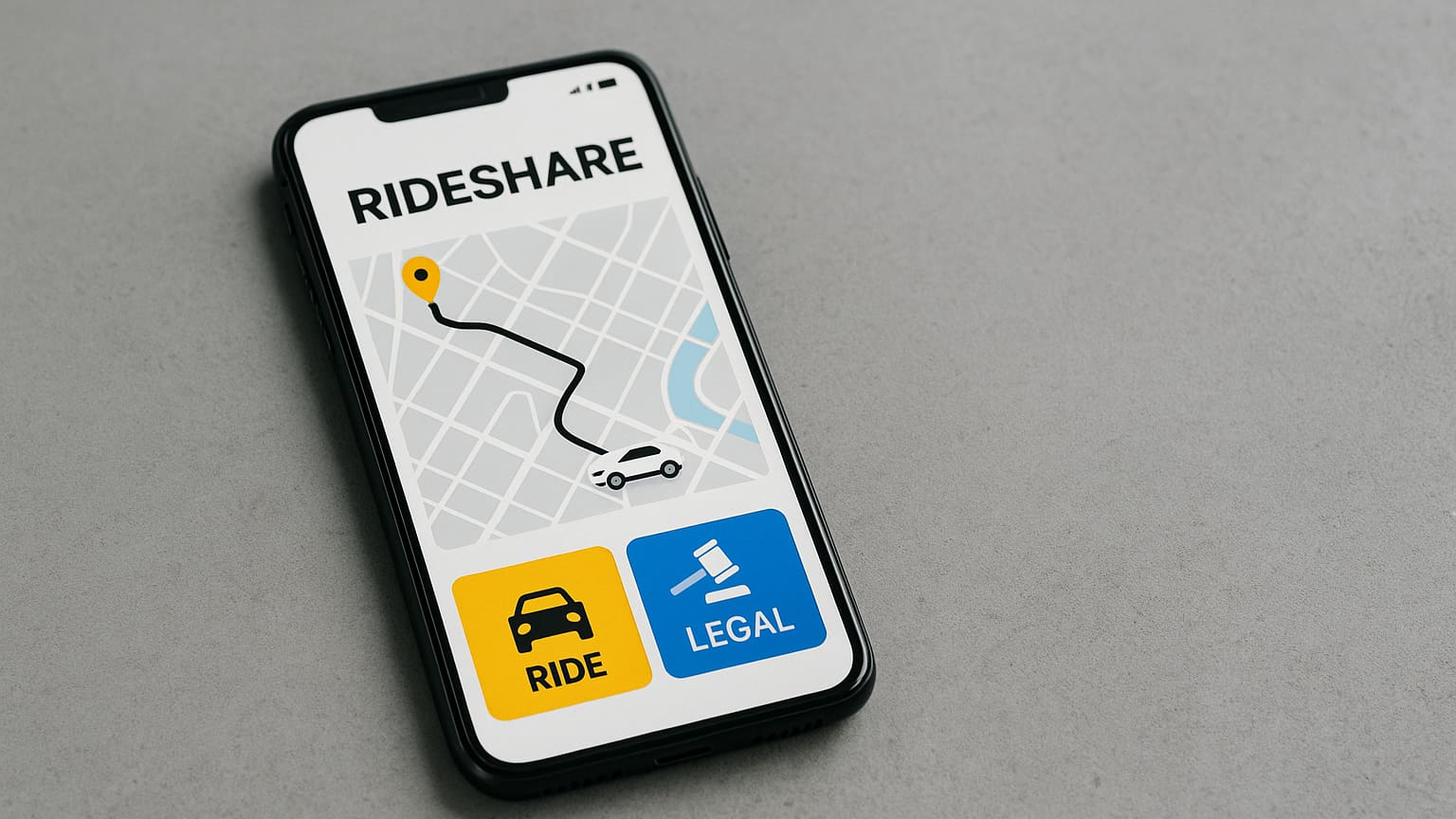Understanding Legal Challenges in the Rideshare Era

The Intersection of Convenience and Complexity in Urban Transport
Rideshare services have changed urban transportation, offering convenience for many. However, they also bring legal challenges that users and drivers must understand to ensure safety and accountability.
By The Editors
Mon, Nov 24, 2025 01:37 AM PST
Featured image by Bazoom AI.
Rideshare services have become a staple in urban transportation, especially in large cities. These platforms provide a level of convenience and flexibility that traditional transportation methods cannot match. However, this rapid growth has introduced legal complexities that affect both users and drivers. Whether you are a regular passenger or a driver, understanding your rights and responsibilities is essential. Consulting a Los Angeles rideshare accident lawyer can provide clarity and support if you encounter a legal issue related to ridesharing.
The transformation of urban mobility through rideshare platforms has created a paradigm shift in how people perceive and utilize transportation services. This evolution has not only disrupted traditional taxi industries but has also raised important questions about worker classification, insurance requirements, and municipal regulations. As cities adapt to this new transportation landscape, lawmakers and regulators struggle to keep pace with technological innovation, often resulting in legal gray areas that can leave both drivers and passengers vulnerable. Understanding these complexities is crucial for anyone participating in the rideshare economy, whether as a service provider or consumer.
Popularity of Rideshare Services in Cities
Rideshare apps have become an integral part of urban transportation systems. Their popularity is due to ease of use, competitive pricing, and availability that meet the demands of modern commuters. As more people seek alternatives to owning personal vehicles or using public transport, rideshare services fill a critical gap in the market. This shift has impacted traditional transportation methods, leading city planners to integrate rideshare data into urban transport models for better traffic management. However, increased reliance on these services brings challenges regarding safety standards, insurance coverage, and legal accountability, necessitating greater awareness among riders and drivers.
The exponential growth of rideshare services has fundamentally altered urban transportation ecosystems, with millions of rides completed daily across major metropolitan areas. This popularity stems from multiple factors including real-time tracking features, cashless transactions, driver rating systems, and the ability to request rides instantly through smartphone applications. Environmental considerations have also contributed to their adoption, as ride-sharing can potentially reduce the number of vehicles on roads and lower carbon emissions when used efficiently. However, this widespread adoption has created new challenges for city infrastructure, including increased traffic congestion in downtown areas, concerns about driver background checks, and the need for designated pickup and drop-off zones at airports and public venues.
Legal Challenges in Rideshare Incidents
Rideshare incidents often present complex legal challenges due to the unique nature of these services. Determining liability in an accident can be complicated, involving multiple parties such as the driver, passenger, and sometimes the rideshare company. For passengers, understanding liability can be confusing, as different insurance policies may apply depending on whether the driver was logged into the app. This complexity can lead to disputes over compensation claims, requiring legal guidance. Drivers must also ensure compliance with local regulations, maintaining vehicle safety standards and adequate insurance coverage to avoid penalties or impact on insurance claims.
One of the most significant legal challenges in rideshare incidents involves the concept of "period coverage gaps," which refers to different insurance coverage levels depending on the driver's status at the time of an accident. When a driver is offline, their personal insurance applies; when they're logged in but haven't accepted a ride, limited contingent liability coverage may apply; and when actively transporting a passenger, the rideshare company's commercial policy typically provides coverage. These distinctions create confusion and potential coverage disputes, particularly in hit-and-run scenarios or when multiple vehicles are involved. Additionally, jurisdictional differences in rideshare regulations across cities and states further complicate legal proceedings, as what applies in one location may not be relevant in another, requiring specialized knowledge of local laws and precedents.
Rights and Responsibilities of Users
As a rideshare user, being aware of your rights is vital for ensuring safety and security during each trip. Passengers have the right to expect safe transportation from licensed drivers who follow traffic laws. You should also be informed about recourse options if an incident occurs. Drivers have specific rights and responsibilities as independent contractors under large platform corporations. They must navigate complex agreements outlining their duties while protecting their interests legally. Third parties, such as pedestrians or other motorists involved in rideshare accidents, face challenges in seeking compensation or determining liability. Being informed ensures all parties can protect themselves legally while promoting safer road interactions.
Understanding the terms of service and user agreements is fundamental to protecting your rights as a rideshare participant, though many users accept these agreements without thorough review. Passengers should be aware that they have the right to refuse rides from drivers who appear impaired or whose vehicles don't match the app description, and they can report safety concerns directly through the platform. Documentation is crucial in protecting your interests—taking screenshots of trip details, driver information, and any communications can prove invaluable if disputes arise. For drivers, maintaining proper documentation of vehicle maintenance, insurance policies, and trip logs is essential for protecting against false claims and ensuring compliance with platform requirements. Both parties should understand that rideshare companies often include mandatory arbitration clauses in their agreements, which can limit options for pursuing legal action in court and instead require disputes to be resolved through private arbitration processes.
Role of Legal Professionals in Rideshare Cases
Legal professionals play a crucial role in resolving disputes from rideshare incidents. Their expertise is essential for interpreting complex contracts and regulations governing the industry. Whether you are a passenger or driver involved in an accident, seeking advice from experienced attorneys can help clarify liability issues and facilitate fair settlements. Lawyers specializing in personal injury law provide support when dealing with insurance companies reluctant to settle claims amicably. Their negotiation skills advocate effectively for clients seeking rightful compensation after a rideshare mishap. Understanding how lawyers can assist emphasizes the benefits of seeking timely advice when navigating these matters independently proves challenging.






